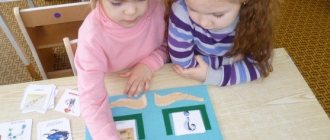Now there will be a slightly non-standard post for my IT website. But maybe my experience will be useful to someone!
Until the age of 25, I burred at R and L. But at the same time, I did not burr at the soft letters Rb and L. I learned to pronounce the letters R with my throat so well that people understood me quite well, although I didn’t say such terrible words as ENT and Laravel, which sounded extremely strange to me :)
I did not replace words with R with words without R, i.e. For me, fish was fish, not a herring, and work was work, not “business.” At the same time, I tried to pronounce R, and in some cases people simply swallowed the sound.
As a child, I thought that I simply could not pronounce R correctly; I did not even realize that it should be pronounced with the tongue, and not with the throat. In adolescence, I realized that I was addicted to the needle of “burr” and this illness could not be gotten rid of so easily. But it didn’t cause me any problems, and the people around me were quite normal about it.
By the way, there was no speech therapist at school, and no one told me about the burr until I realized it myself.
First problems.
The first problems began while serving in the army. This was in 2011. At that time, there was a program on TV about Bearded Man, a security guard from a store. Remember? So, he lisped. I didn’t burr that much, but I could easily parody the Bearded Man. Many colleagues asked me to say: Alexandergggg Gggodionovich Boggodach. It was funny, I wasn’t offended by it, people made good jokes, but of course I was pretty tired of it.
But after the service, everything returned to normal and no one said anything about it. Well, maybe behind your back, as we like 
At 25 years old, burr cannot be corrected. Late. You will not make it.
How many times have you heard this? I think a lot. But what you do is up to you. If you want to achieve or do something, then sooner or later you will reach your goal. If, of course, you go to her. In 2022, I began to think about correcting burr at home, without visiting a speech therapist (but in vain... read). This was around the beginning of April.
My wife's grandmother is a speech therapist. And from her I heard that there is practically no chance of correcting burr in an adult. I heard the same thing on forums and YouTube. The funny thing is that on YouTube people talk about how to get rid of burr, but at the same time they themselves have never burred. 
I think the best speech therapist is the one who burred himself and got rid of the burr himself. He will definitely be “on topic”. But such speech therapists do not exist on this planet. Just a joke, of course.
Types and causes of burr:
Depending on the causes of burr, two types of speech defects are distinguished:
- Velar rotacism, in which the edge of the soft palate vibrates;
- Uvular rotacism, in which the small uvula of the soft palate vibrates.
Causes of burr:
- Phonemic hearing disorders;
- Partial paralysis of the tongue muscles;
- Pedagogical neglect;
- Shortened frenulum of the tongue;
- Hereditary factor;
- Weakness of the tongue muscles.
A little introductory information from a burr with experience.
Burry people speak from their throats. I also spoke. This makes for a completely different sound. Just as the throaty R is unusual for you, the tongue-tip R is unusual for the burr. But it is not necessary to burr at all sounds, both hard and soft. I already talked about this above. I had practically no problems with R, as well as with L.
But this does not mean that R was easy. These sounds are pronounced completely differently. Like L and L. Do you think it’s possible to burr with L? It’s easy, try to pronounce it with your throat: press the root of your tongue to your upper jaw and try to say L. Yes, yes...
Symptoms of speech impediment
Typical symptoms of burr or rotacism are:
- incorrect pronunciation of hissing and/or whistling sounds – sigmatism;
- difficulty in pronouncing whistling and hissing sounds - parasigmatism;
- pathologies with sonorants [р], [р`], [л], [л`];
- problems with back-lingual phonemes - [g], [g`], [k], [k`], [x], [x`] - gammacism, cappacism and hitism;
- pathology [th] (yotacism);
- replacing voiced consonants with voiceless ones or mixing such phonemes;
- violation of the softness of sounds.
All these manifestations are typical symptoms of burr.
How I corrected burr as an adult: at 25 years old.
Attention, I am not a speech therapist and I don’t know if I did everything right. It helped me and that's the most important thing!
To be more precise, I started correcting my burr in April, when I was still 24 years old.
I approached this matter with all responsibility and I was extremely tired of my wife, but I thank her for her patience.
Where did I start? People who burr as adults also burr when they think . But you don’t need to deceive yourself and say that this is not so. This is true :) After all, when we think, we try to say something about ourselves with our voice. And for a person who cannot pronounce R, it is impossible to even imagine how it would sound from his lips.
April 2022: forget about throat R.
So the first thing was to get rid of the burr in my head. This is just a psychological moment that I spent a whole month on. It sounds strange and funny, but this helped in the future not to be confused between the throaty R and the R pronounced in the correct way. Although I was still confused for the first month, when I started talking to people correctly, very quickly I forgot about the throat R, in about a week.
Next, I began to try to reconfigure the articulatory apparatus to pronounce R. I did this through J. Tritely at home, when communicating I pronounced instead of the word Gggossia (Russia), Zhossia, Gabota was transformed into Jabota and so on. This took me about two weeks.
Then I stopped suffering from bullshit and began to study hard. It was already towards the end of May 2022.
May 2022: trying to install an isolated R sound at home (it didn’t work).
By the way, if you didn’t burr and the thought arises in your head: well, it’s so easy to pronounce R! What's difficult here? That's all right. My wife had the same thought. She pronounces all the sounds of the Russian alphabet very clearly, I asked her to open her mouth and try to pronounce the sound R. It’s funny! But I clearly saw how this sound should be pronounced.
And this sound appears due to the vibration of the tip of the tongue against the teeth and alvioles. I tried this way and that, but over time the tongue found the correct position for pronouncing R. Have you thought about this? For me this position is between the incisors and alvioli. In the middle.
I asked her, how do you do it? The answer, of course, was killing me: it’s itself, I can’t even explain it.
Looking ahead, I will say that you need 10,005,000 hours of training the tongue muscles. The tip of the tongue should vibrate even when blowing lightly on it. The only way. It was only through pain and training (yup) that I developed the R sound. I rolled my tongue, I bit it, I brushed it, I did exercises from the internet, and so on. Plus you need to remember about the air flow, it should be directed towards the tip of the tongue. Well, after 100 lessons you will have it automatically :)
Speech therapy diagnostics
Before prescribing exercises for burr, it is necessary to conduct a detailed speech therapy diagnosis. It begins with a conversation between the child and the specialist. To develop corrective work for rotacism, the speech therapist must determine the following parameters:
- peculiarity of pronunciation of phonemes;
- features of the baby’s psycho-speech development;
- identify defects in sound pronunciation through phonetic analysis;
- assess the condition of the articulation apparatus and identify its defects and pathologies;
- assess the child's vocabulary;
- identify features of writing, grammar, memory, reading;
- determine the level of visual perception;
After these steps are completed, a phonetic hearing assessment is carried out, and then a plan is made to eliminate the burr. In some cases, you will need the help of other specialists - a psychotherapist, a neurologist, a dentist, an otolaryngologist and others.
Heavy artillery.
June 2022: watch Youtube, do the same exercises. By the end of June, I was able to pronounce R poorly and isolated. I can’t put R into words, I’m looking for a speech therapist.
I’ll say right away: go to a speech therapist. Not on Skype, not on the phone. Only live, only one-on-one. I learned to pronounce the R sound more/less independently in isolation, but I could not insert this sound into words. It sounded like this: the first part of the word comes, then a pause, then a rolling RRRR, then the rest of the word :)
How long did I study? About 1-2 hours a day. I installed the sound myself in 1.5 months. I spent almost two months on this. Can you imagine?
This old video helped me a lot:
In the third minute there is an exercise with cotton wool. This is one of the best exercises to start pronouncing the R sound using the tip of your tongue. The point is that you must learn to direct a stream of air with your tongue to the tip of your nose, where the cotton wool lies and needs to be blown away. You need to blow on the tip of your tongue to control the air flow.
Next, at the fifth minute, there is a very strange, but coolest exercise to make your tongue vibrate. Just watch the video. This exercise helped me a lot and by the way, I did it to myself, and with the help of this exercise I made the tip of my tongue vibrate so that the first real R sound appeared.
I did all the exercises from the video and it took a month and a half. Although I know a person who has been doing the same exercises for half a year and has no results. Do you know why? He does them 1-2 times a week. Needs to be done every day.
How to stop lisping as a teenager?
Teenagers, or, as it is now fashionable to call them, teenagers, are almost adults aged 16-18 years. The problem of dyslalia often occurs among them.
How to stop a teenager from burring? The best option would be to contact a professional speech therapist, who will prescribe a special program for the still developing organism. In addition, a teenager can independently do simple exercises to develop articulation.
Introduction of the sound R into speech in an adult.
July, August, September, October - classes with a speech therapist 1-2 times a week + daily classes at home.
4 months - that’s how much I spent to introduce the sound R into my speech. All this time I studied only with a speech therapist. Of course, it was funny when 5-6 year old children were sitting next to them, but what to do?:) The lesson took 1 hour.
How was the session with a speech therapist with an adult:
The first 20 minutes were a warm-up. We quickly went through all the exercises from that video above. By the way, the sequence was also something like this. When performing these exercises, the tongue actually turned blue. Next, we pronounced all the words, where there is simply the maximum number of letters R. At first these were individual words, then there were phrases and whole sentences. Last month these were already texts, for complete automation.
It was much easier for me to pronounce the sound R in reverse, for example: oP, aP, uP, instead of Ro, Ra, Ru. Everything is individual here. Approximately the first two months of classes with a speech therapist, this is 40 minutes of execution with the sound R. Plus classes at home. My brain began to forget throat pronunciation, and after several classes (about 4 classes), I began to introduce R into speech, that is, speak to people correctly. Sometimes embarrassments arose because of the rolling R, for example RRRRRRRWork, instead of Work. Sometimes the tongue gets confused and you burr at one sound, but not at another, but that was the first couple of weeks. 
I understood one “trick”, it’s like learning another language or some kind of technology. Do you want to learn it quickly? Implement it right away. Knowledge without practice is equal to 0, everything is quickly forgotten. It's the same with pronunciation. Don't start talking? Money and time are wasted.
I wasn't afraid of saying something wrong, even though it was funny at times. After all, before that I also pronounced sounds incorrectly. Nothing changes for me. But the result was not long in coming.
By October, I was already calmly talking to people and they didn’t ask me again when something became unclear to them.
Definition
Burr is a person’s inability to clearly reproduce the letter “r”. According to statistics, this speech disorder is most common among children and adults. As a rule, correction of the defect is carried out in childhood, when it is easier to eliminate it. However, many parents do not consider this a pathology and do not seek treatment, despite the fact that children subsequently experience difficulties communicating with peers.
What's the result?
Half a year of classes. A lot of wasted time and nerves. These are the disadvantages. Now the advantages are the clear pronunciation of the sound R. Even in a whisper. Starting in July, I spoke to people correctly, but went to a speech therapist. It was an important moment and very right for me.
I hope you enjoyed the article and can use my experience to plan your lesson plan. I answer all questions in the comments (quickly) and by email, which is slower. Since I studied on my own and with a speech therapist for a long time, you can at least go and work as a speech therapist yourself :) If you have any questions, ask!
Why do some people burr?
The answer to the question of what and why people burr is very simple. In medical terminology, this feature is called dyslalia - a violation of correct sound pronunciation. Sometimes this phenomenon is also called rotacism. A person who burrs often has completely normal articulation and good hearing - but that’s not the point. There may be several reasons for rotacism.
By the way, you were talking about L. What's with her?
I pronounced it wrong. That's all. As it turned out, you need to press the tip of your tongue against your teeth and try to pronounce the sound L. I spent 2-3 lessons on it + a couple of weeks at home to practice. As young people say: it was absolutely easy :)
But we trained her exactly the same way as R, no concessions. There were words with La, lu, le... and with Al, st, ate....
PS when I burred, I practically did not notice that some people also burred. I was on the same wavelength with them, now I notice.
Sound production methods
You don’t have to immediately contact a specialist; try correcting your pronunciation at home on your own. Examples of exercises:
- Relax your tongue and lightly touch the back of your tongue to the edge of your palate. The touch should be light. With regular exercise, a slight burr will appear. Many people find it helpful in the initial stages to use a mirror as an object for observing the movements of the articulatory apparatus.
- Each of us gargled when we had a sore throat. When you throw your head back and “gurgle”, pronounce the Ukrainian “g”. Such training should also be regular.
- The easiest way is to audio play French speech and repeat it. These could be lessons, songs you like, sayings with this sound. For example, try saying: “Rat vit riz rat mit patte à ras rat mit patte à riz riz ciut patte à rat.”
It will be useful to record your speech on a voice recorder. This way you will observe the dynamics of the manifestation of rotacism.
The most important thing is that if you are learning to burr in order to visit this amazing country or move to a permanent place of residence, even when you speak without much burr, the Frenchman will still understand your speech.
Appeal to parents.
Dear parents, if your child has a burr and you sent him to a speech therapist, but after three classes you realize that nothing is improving, do not tell your child about it!!! How can you even say such a thing?
Damn, I heard several times (99% of children have speech therapists) from mothers: son (daughter), most likely nothing will work out for you. We are walking in vain. You're just not like everyone else. Oh, how ashamed I was then for such “mothers.” Unfortunately, there is no other way to call them.
The child is 6-7-8 years old, classes may last a month, but the result will be. You didn’t learn to speak Russian in a week, did you? No? Well, what do you want from the child? You probably don’t even work with him at home, because a speech therapist for 500-600 rubles should do a miracle! Ah, class once a week...








